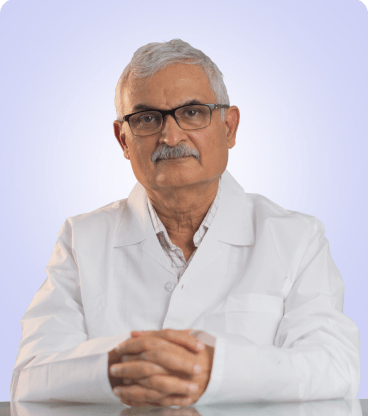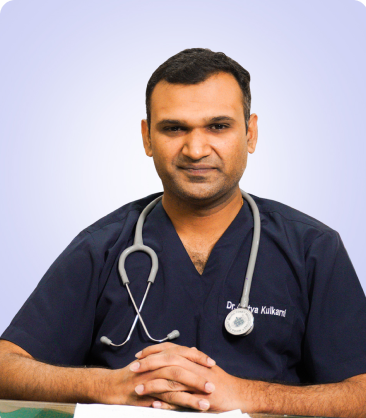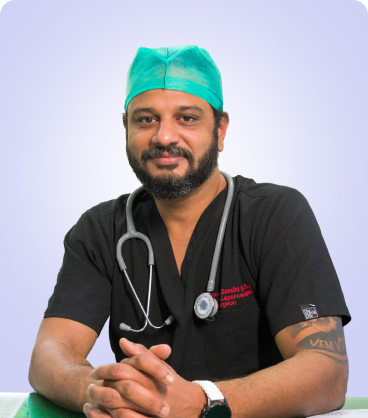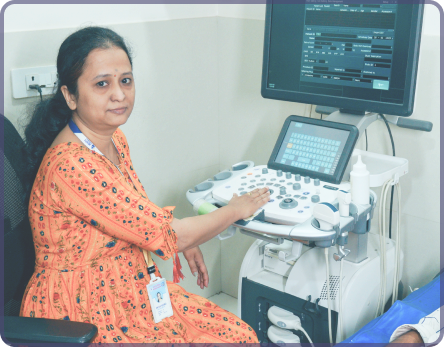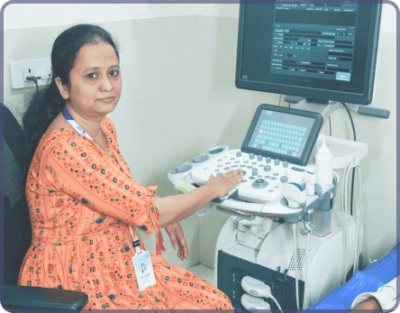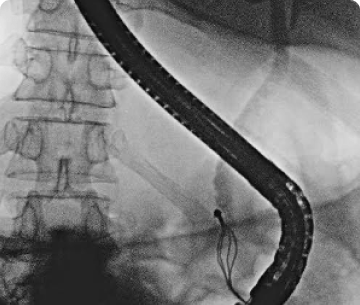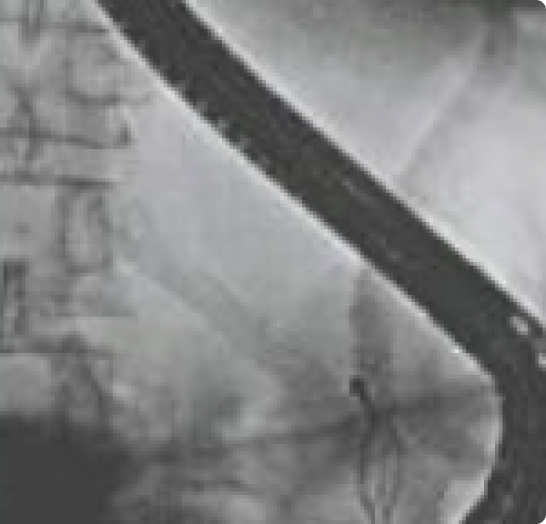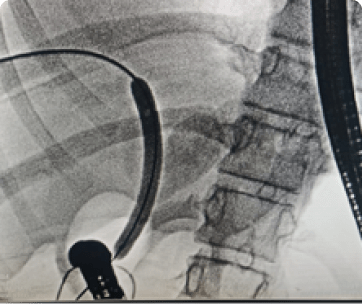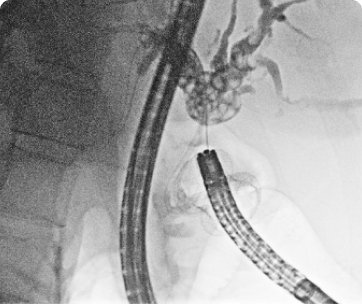PEPTIC ULCER TREATMENT
An ulcer on the lining of your stomach, small intestine, or oesophagus is commonly referred to as a peptic ulcer. There are some symptoms such as burning stomach pain, bloating, and nausea. This can be painful and interfere with your daily life.
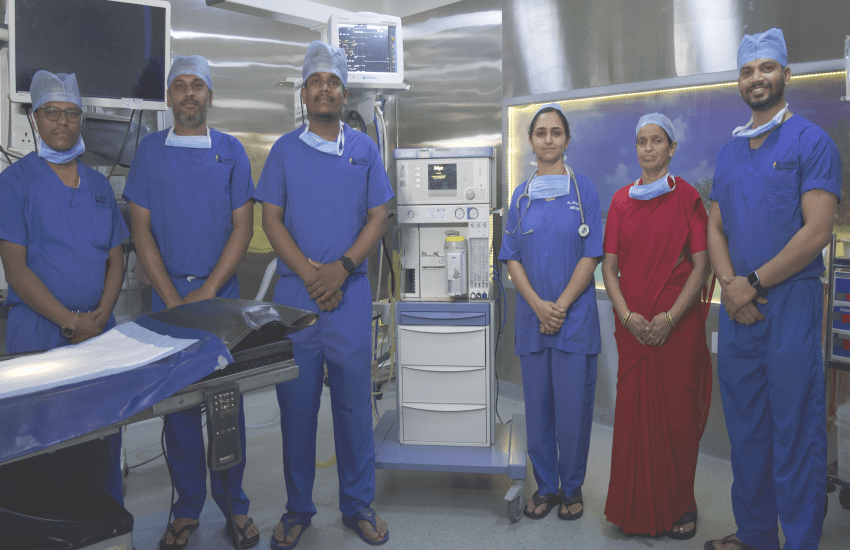
Peptic Ulcer Treatment
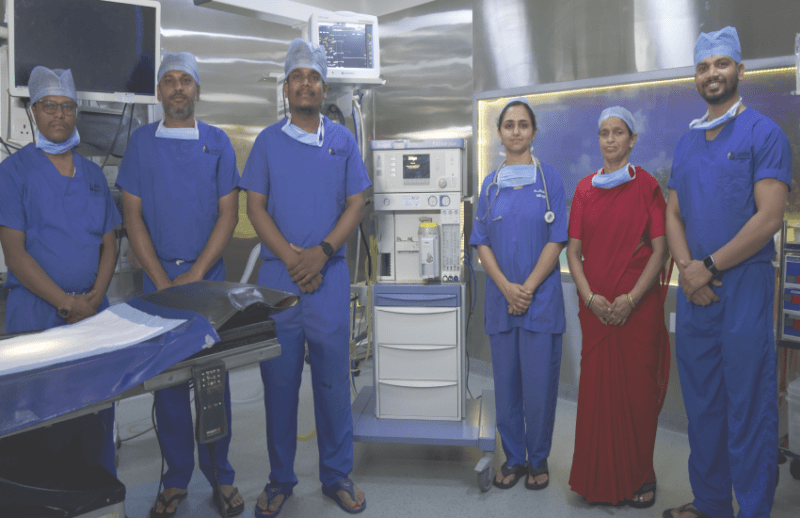
An ulcer on the lining of your stomach, small intestine, or oesophagus is commonly referred to as a peptic ulcer. There are some symptoms such as burning stomach pain, bloating, and nausea. This can be painful and interfere with your daily life.
OVERVIEW
Peptic ulcers are a common problem, but they can be treated effectively. If you are experiencing symptoms of a peptic ulcer, it is important to see a doctor so that the ulcer can be diagnosed and treated promptly. Doctors may prescribe antibiotics to target the root cause of Helicobacter pylori (H. pylori) infection. For more potent and lasting relief, Proton Pump Inhibitors (PPIs) play a vital role by reducing acid production and accelerating the healing process of peptic ulcer treatment. Combining creativity, genuine care, and cutting-edge treatments, individuals can conquer peptic ulcers and regain control of their lives. With proper treatment, most peptic ulcers can be healed completely.
When it comes to treating peptic ulcers at Antrang Hospital, we prioritise prompt diagnosis and efficient care, including proton pump inhibitors and medicines for H. pylori. Our commitment is not only to treat peptic ulcers but also to empower individuals with the tools for lasting digestive well-being.
H. pylori is a bacterium that can colonize the lining of the stomach and weaken its protective mucus layer. This makes the stomach more susceptible to damage from gastric acid, leading to the formation of ulcers. Most cases of peptic ulcers are linked to H. pylori infection, making it a significant cause that requires prompt treatment.
Nonsteroidal Anti-Inflammatory Drugs (NSAIDs):
Prolonged use of nonsteroidal anti-inflammatory drugs (NSAIDs) such as aspirin, ibuprofen, and naproxen can irritate the stomach lining and disrupt the production of protective mucus. As a result, the stomach’s defence against stomach acid weakens, increasing the risk of peptic ulcers.
Excessive Gastric Acid Production:
An imbalance in the production of gastric acid can also contribute to the development of peptic ulcers. Conditions like Zollinger-Ellison syndrome can cause the stomach to produce excessive amounts of acid, leading to erosions in the stomach or small intestine lining.
Lifestyle and Diet Factors:
Certain lifestyle choices, such as smoking and excessive alcohol consumption, can irritate the stomach lining and exacerbate the risk of developing peptic ulcers. Additionally, a diet high in spicy, acidic, or heavily processed foods may contribute to increased gastric acid production and worsen ulcer symptoms.
Stress / Pressure:
While stress alone may not cause peptic ulcers, it can exacerbate existing ulcers or contribute to their development by increasing gastric acid production and affecting the protective mucus layer in the stomach.
Understanding the root causes of these painful sores is necessary for the accurate diagnosis of peptic ulcers. Taking the patient’s medical history and doing a physical examination are the first procedures performed by medical professionals. An endoscope, in which a tiny camera is put via the mouth to inspect the stomach and upper small intestine, is the primary diagnostic technique. Additionally, specialized tests are conducted to detect Helicobacter pylori (H. pylori) infection, a common culprit behind peptic ulcers. To create a successful treatment plan and effectively control peptic ulcers, a prompt and precise diagnosis is crucial.
An upper gastrointestinal (GI) series of X-rays is also performed as part of the diagnostic process after the patient has ingested a barium solution. Assessing the severity of ulcer complications and excluding other possible problems also benefits from blood testing and imaging procedures like CT scans. Doctors can provide suitable medical therapies, enhance patient well-being, and avoid problems related to peptic ulcers through a thorough diagnosis. Seeking medical help as soon as you notice peptic ulcer symptoms can ensure rapid treatment and a higher standard of living.
Antibiotics:
A course of antibiotics is required to get rid of the bacteria if an H. pylori infection leads to a peptic ulcer. Clarithromycin and amoxicillin are the most commonly prescribed antibiotics for the treatment of stomach ulcers.
Endoscopy and Surgery:
Endoscopy may be necessary to identify and treat the ulcer in severe situations or when complications occur. If the ulcer remains untreated with previous therapies, surgery can be required.
2. Dietary & Lifestyle Changes:
Licorice Root:
Licorice root includes substances which stimulate the creation of mucous and support the protection of the stomach lining. For convenience, use licorice root tea or chew deglycyrrhizinated licorice (DGL) tablets.
Honey:
The antimicrobial qualities of raw honey can reduce stomach ulcers. Eat a tablespoon of raw honey in the morning or right before bed, on an empty stomach.
Aloe Vera:
Inflammation can be reduced and stomach ulcers can be healed with the help of aloe vera juice. Before meals, drink 1/4 cup of pure aloe vera juice.
Here are some reasons why you should see a doctor for stomach ulcer treatment:
Persistent Abdominal Pain:
It could possibly be a symptom of a stomach ulcer if you have frequent or persistent abdominal pain, especially after eating or at night. Antacids can offer temporary relief from the discomfort, which can feel burning. When the pain becomes more frequent or severe, it’s time to see a doctor.
Nausea and Vomiting:
Vomiting and nausea might be a sign of stomach ulcers. You must get medical treatment as soon as possible if you observe blood in your vomit or if the vomiting persists.
History of NSAID Consumptions:
Nonsteroidal anti-inflammatory medicines (NSAIDs), such as aspirin, ibuprofen, or naproxen, should be used sparingly since long-term usage can raise the risk of stomach ulcers. It is critical to contact medical treatment.
Unjustified Weight Loss:
Unintentional weight loss that occurs without any dietary or exercise changes might be a warning sign of a more serious gastric ulcer. It could suggest a necessity for medical treatment
H. pylori is a bacterium that can colonize the lining of the stomach and weaken its protective mucus layer. This makes the stomach more susceptible to damage from gastric acid, leading to the formation of ulcers. Most cases of peptic ulcers are linked to H. pylori infection, making it a significant cause that requires prompt treatment.
Nonsteroidal Anti-Inflammatory Drugs (NSAIDs):
Prolonged use of nonsteroidal anti-inflammatory drugs (NSAIDs) such as aspirin, ibuprofen, and naproxen can irritate the stomach lining and disrupt the production of protective mucus. As a result, the stomach’s defence against stomach acid weakens, increasing the risk of peptic ulcers.
Excessive Gastric Acid Production:
An imbalance in the production of gastric acid can also contribute to the development of peptic ulcers. Conditions like Zollinger-Ellison syndrome can cause the stomach to produce excessive amounts of acid, leading to erosions in the stomach or small intestine lining.
Lifestyle and Diet Factors:
Certain lifestyle choices, such as smoking and excessive alcohol consumption, can irritate the stomach lining and exacerbate the risk of developing peptic ulcers. Additionally, a diet high in spicy, acidic, or heavily processed foods may contribute to increased gastric acid production and worsen ulcer symptoms.
Stress / Pressure:
While stress alone may not cause peptic ulcers, it can exacerbate existing ulcers or contribute to their development by increasing gastric acid production and affecting the protective mucus layer in the stomach.
Understanding the root causes of these painful sores is necessary for the accurate diagnosis of peptic ulcers. Taking the patient’s medical history and doing a physical examination are the first procedures performed by medical professionals. An endoscope, in which a tiny camera is put via the mouth to inspect the stomach and upper small intestine, is the primary diagnostic technique. Additionally, specialized tests are conducted to detect Helicobacter pylori (H. pylori) infection, a common culprit behind peptic ulcers. To create a successful treatment plan and effectively control peptic ulcers, a prompt and precise diagnosis is crucial.
An upper gastrointestinal (GI) series of X-rays is also performed as part of the diagnostic process after the patient has ingested a barium solution. Assessing the severity of ulcer complications and excluding other possible problems also benefits from blood testing and imaging procedures like CT scans. Doctors can provide suitable medical therapies, enhance patient well-being, and avoid problems related to peptic ulcers through a thorough diagnosis. Seeking medical help as soon as you notice peptic ulcer symptoms can ensure rapid treatment and a higher standard of living.
Antibiotics:
A course of antibiotics is required to get rid of the bacteria if an H. pylori infection leads to a peptic ulcer. Clarithromycin and amoxicillin are the most commonly prescribed antibiotics for the treatment of stomach ulcers.
Endoscopy and Surgery:
Endoscopy may be necessary to identify and treat the ulcer in severe situations or when complications occur. If the ulcer remains untreated with previous therapies, surgery can be required.
2. Dietary & Lifestyle Changes:
Licorice Root:
Licorice root includes substances which stimulate the creation of mucous and support the protection of the stomach lining. For convenience, use licorice root tea or chew deglycyrrhizinated licorice (DGL) tablets.
Honey:
The antimicrobial qualities of raw honey can reduce stomach ulcers. Eat a tablespoon of raw honey in the morning or right before bed, on an empty stomach.
Aloe Vera:
Inflammation can be reduced and stomach ulcers can be healed with the help of aloe vera juice. Before meals, drink 1/4 cup of pure aloe vera juice.
Here are some reasons why you should see a doctor for stomach ulcer treatment:
Persistent Abdominal Pain:
It could possibly be a symptom of a stomach ulcer if you have frequent or persistent abdominal pain, especially after eating or at night. Antacids can offer temporary relief from the discomfort, which can feel burning. When the pain becomes more frequent or severe, it’s time to see a doctor.
Nausea and Vomiting:
Vomiting and nausea might be a sign of stomach ulcers. You must get medical treatment as soon as possible if you observe blood in your vomit or if the vomiting persists.
History of NSAID Consumptions:
Nonsteroidal anti-inflammatory medicines (NSAIDs), such as aspirin, ibuprofen, or naproxen, should be used sparingly since long-term usage can raise the risk of stomach ulcers. It is critical to contact medical treatment.
Unjustified Weight Loss:
Unintentional weight loss that occurs without any dietary or exercise changes might be a warning sign of a more serious gastric ulcer. It could suggest a necessity for medical treatment
Don’t wait!!
Get consulted with our GI specialist today
Book your appointment effortlessly.
FREQUENTLY ASKED QUESTIONS

MEET OUR DOCTORS
Our team comprises of well experienced and skilled medical professionals from all the allied medical specialties helped by young enthusiastic doctors
MEET OUR DOCTORS
Our team comprises of well experienced and skilled medical professionals from all the allied medical specialties helped by young enthusiastic doctors.




